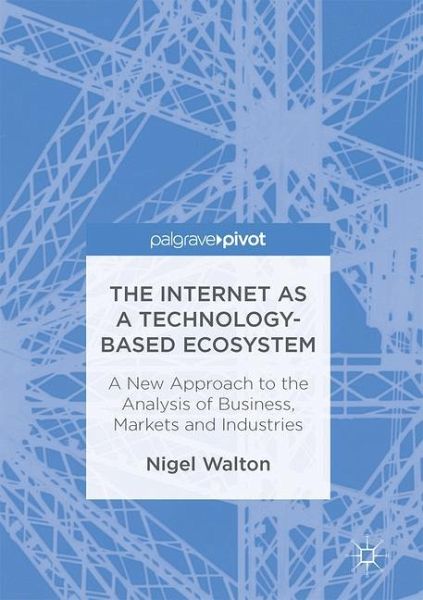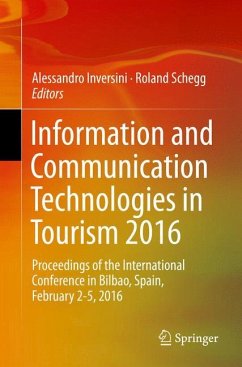
The Internet as a Technology-Based Ecosystem
A New Approach to the Analysis of Business, Markets and Industries
Versandkostenfrei!
Versandfertig in 6-10 Tagen
46,99 €
inkl. MwSt.
Weitere Ausgaben:

PAYBACK Punkte
23 °P sammeln!
This book examines and critiques classical approaches to strategic analysis, whilst exploring alternative methods which utilise ecosystem and platform concepts, as well as chaos and complexity theories. The innovative study provides a critique of the neoclassical Newtonian school of strategy, and proves it to be largely inappropriate as a decision-making methodology in today's internet-based market. By developing a new biological hydrothermal vent model in which analogical comparisons are made with the Information Communication Technology (ICT) sector, the chapters challenge existing paradigms...
This book examines and critiques classical approaches to strategic analysis, whilst exploring alternative methods which utilise ecosystem and platform concepts, as well as chaos and complexity theories. The innovative study provides a critique of the neoclassical Newtonian school of strategy, and proves it to be largely inappropriate as a decision-making methodology in today's internet-based market. By developing a new biological hydrothermal vent model in which analogical comparisons are made with the Information Communication Technology (ICT) sector, the chapters challenge existing paradigms of competitive advantage and analyse the extent to which the Internet can be considered to be an ecosystem in its own right. The Internet as a Technology-Based Eco-System offers a range of alternative models and analytical frameworks for the analysis of internet-based technology companies in the twenty-first century, creating a valuable tool for students and academics undertakingresearch in strategy, technology and electronic engineering.












